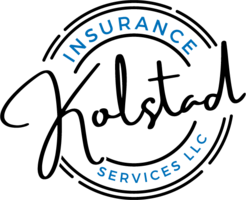Workers Compensation and Payroll: Getting It Right
Workers compensation insurance is required for most contractors, but many don't realize how closely it's tied to payroll reporting. Your premiums are calculated based on payroll, so mistakes here can cost you significantly.
- Keep detailed payroll records. Carriers audit payroll at the end of each policy term. If you've underreported, you'll get a large bill. If you've overreported, you've been overpaying. Track every employee's wages by classification code.
- Understand classification codes. A framing carpenter and a project manager have very different workers comp rates because of different risk levels. Misclassification, even if accidental, leads to audit adjustments and higher premiums.
- Consider owner/officer status carefully. Many states let officers exclude themselves, but if you work on job sites, this could leave you exposed. Talk to your agent about whether opting out makes sense.
- Budget for the audit. Since workers comp is based on estimated payroll, expect an adjustment if actual payroll runs higher. Set aside funds so the audit bill doesn't catch you off guard.
Subcontractor Certificates: Your First Line of Defense
Working with uninsured subcontractors can put your business at major risk. If a subcontractor's employee is hurt and they don't carry workers comp, you could be liable.
- Require COIs before work starts. Every subcontractor should provide proof of general liability and workers comp.
- Check coverage limits. General liability should be at least $1 million per occurrence, often more for larger projects.
- Watch expiration dates. Coverage can lapse mid-project. Request updates before certificates expire.
- Be listed as additional insured. This extends their liability coverage to you for claims tied to their work.
- Verify authenticity. For larger jobs, confirm directly with the carrier that coverage is active.
- Stay organized. Use a spreadsheet or software to track all subcontractor COIs and renewal dates.
Subcontractor Agreements: Protecting Your Business in Writing
A certificate shows insurance exists, but a subcontractor agreement defines the relationship and allocates risk.
- Always use written contracts. Handshake deals create exposure if disputes arise.
- Include indemnification. Subs should agree to hold you harmless from claims tied to their work.
- Spell out insurance requirements. Specify coverage types, limits, and additional insured status in the contract.
- Address lapses. Build in rights to stop work or secure coverage at the subcontractor's expense if their policy lapses.
- Define independent contractor status. Clarify that subs are not employees and handle their own taxes, payroll, and insurance.
- Be precise on scope of work. Clear terms reduce disputes over quality, timelines, or payment.
- Get signatures before work begins. Don't let anyone on-site until paperwork is complete.
Building a Sustainable Insurance Practice
Managing insurance correctly isn't just about compliance. It builds credibility with clients and helps you win better projects.
- Work with a knowledgeable agent. Find someone who understands construction and can navigate complex requirements.
- Review coverage annually. Your needs grow as your business grows.
- Educate your team. Make sure project managers know your insurance requirements and enforce them consistently.



